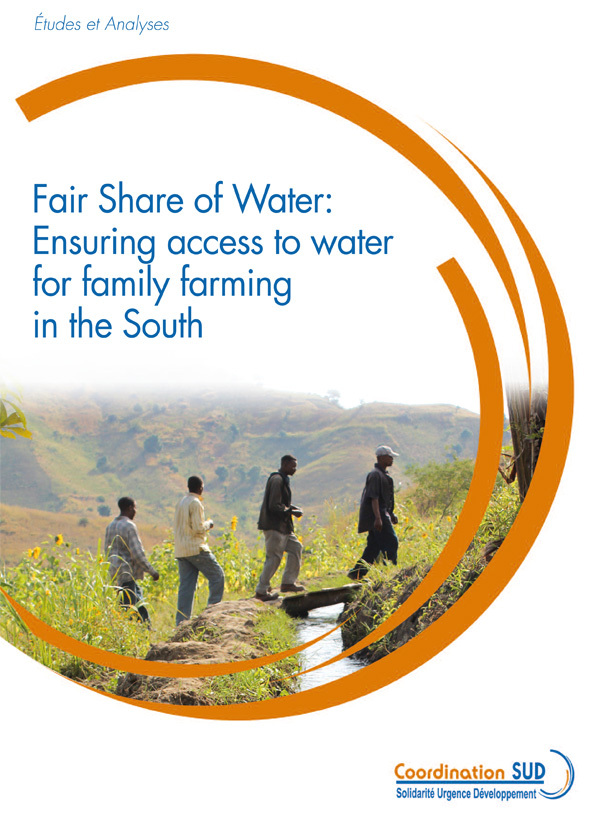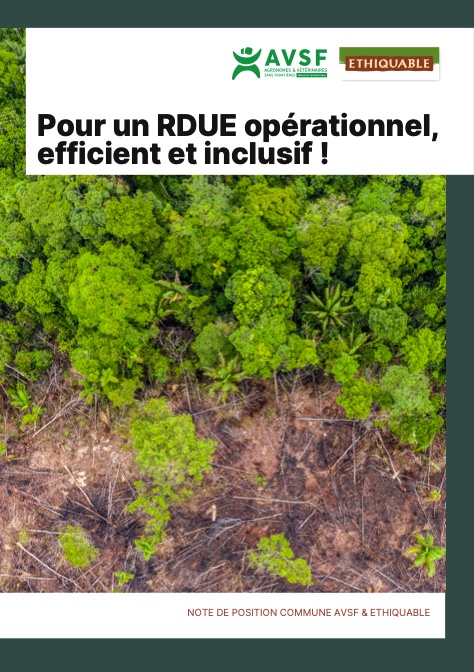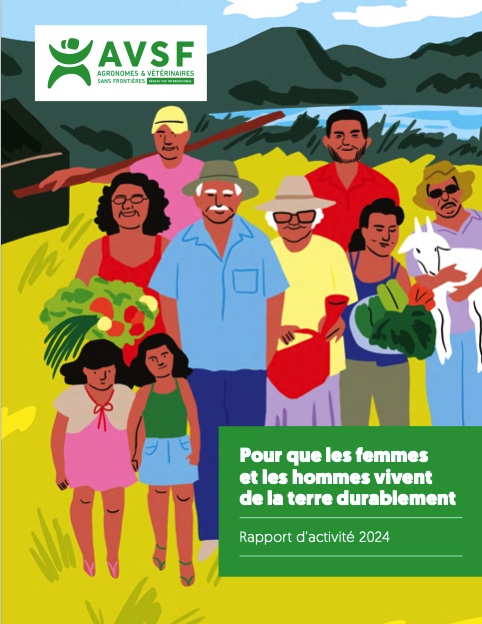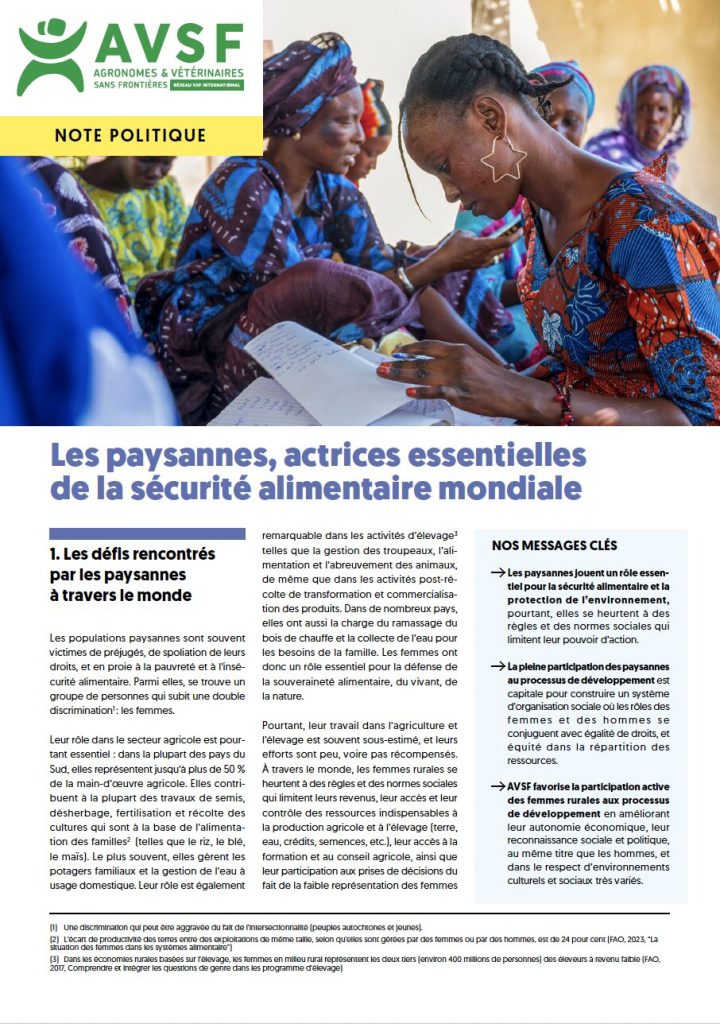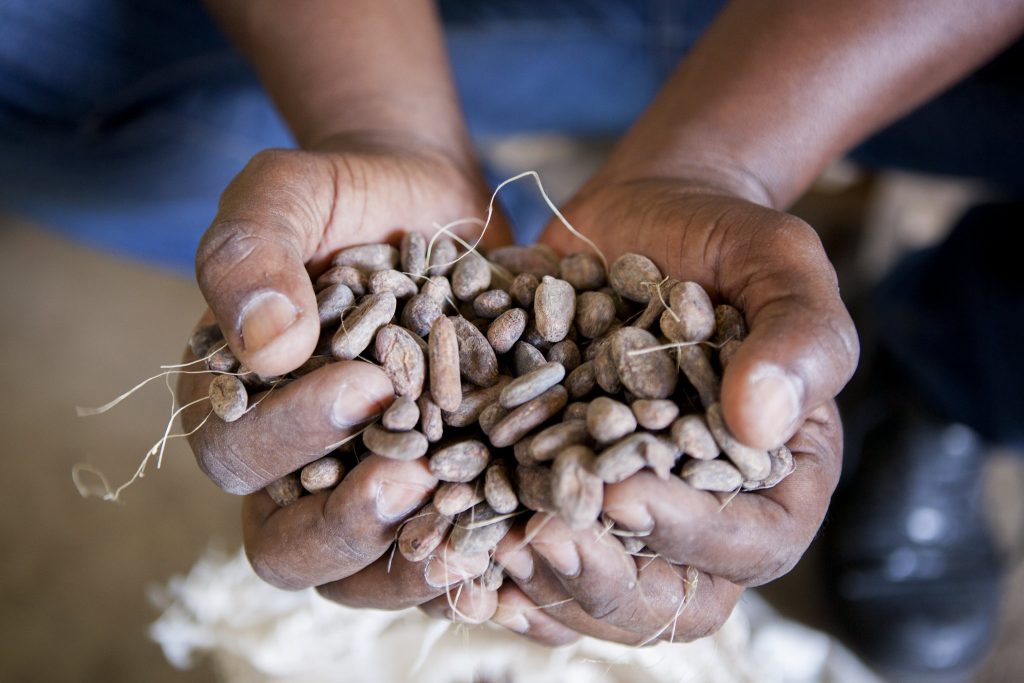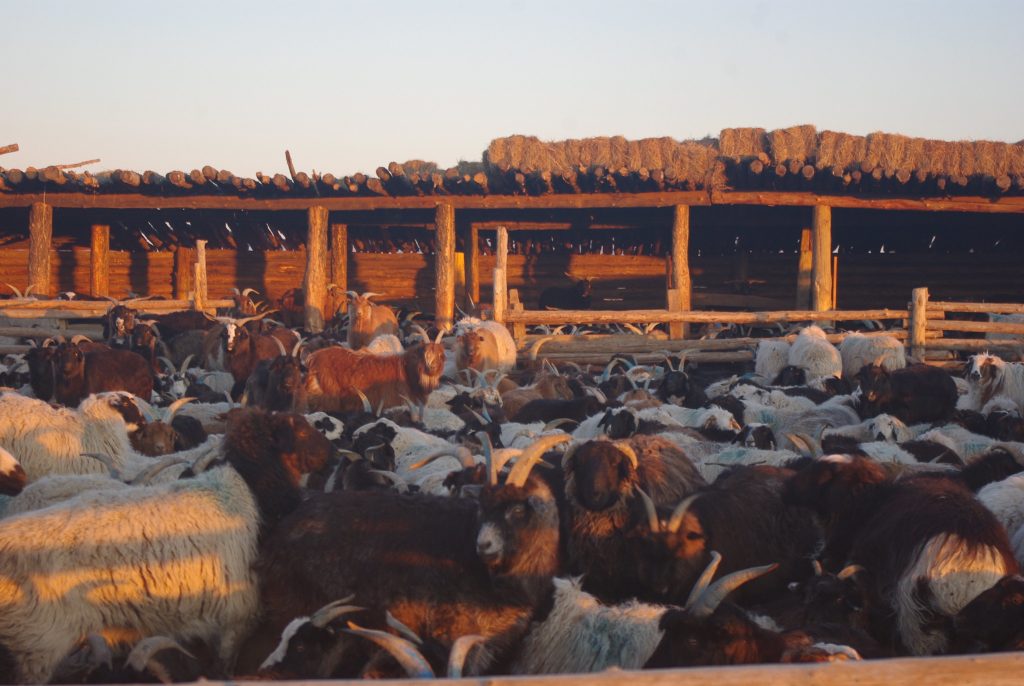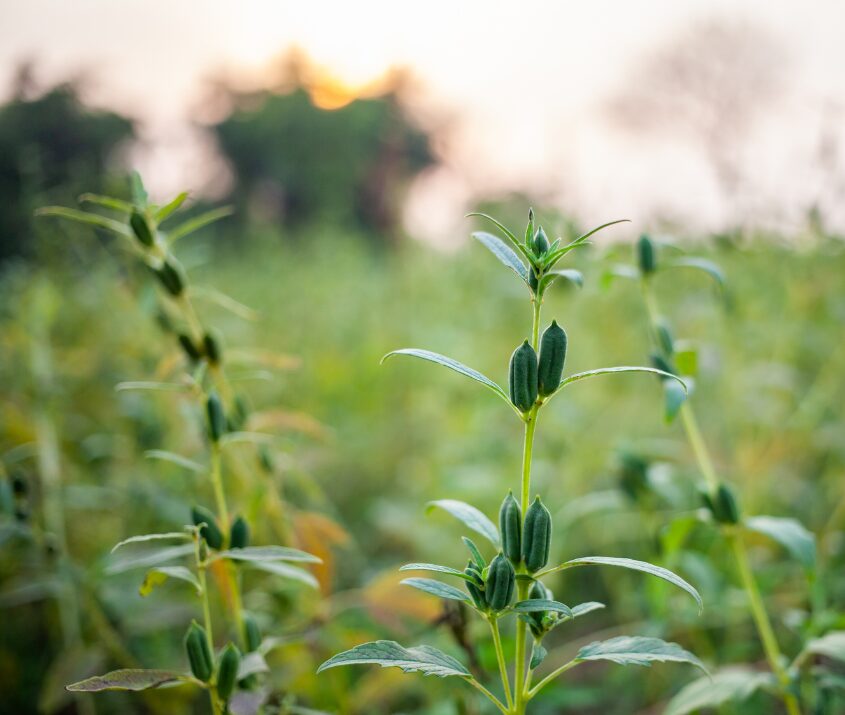Guarantee water for family farming
Fair Share of Water: Ensuring access to water for family farming in the South
(Coordination Sud Report)
Water is an essential asset on which peasant societies of the South strongly depend for their sub-sistence and, more generally speaking, for the production of food products. But competition for water is constantly becoming more intense due to demographic growth, industrialization, urbanization, and modes of food consumption that require an increasing amount of water. Agricultural water is becoming increasingly monop- olized by other economic actors, with no regard for the historic rights of family farming, which is often weaker and less organized politically.
But faced with the 925 million of the world’s people who suffer from hunger, 75% of whom live in rural areas, it’s urgent to guarantee family farming access to water. This is because family farming has huge potential for responding to issues of food security, social equity, and environmental sustainability. In 70% of cases, the people suffering food insecurity in the world are poor farmers. Yet, they provide up to 70% of global food production and 80% of that of developing countries! The 1.8 billion family farmers long ago developed agricultur- al practices and simple techniques of water management that are appropriate for adapta- tion to climate change and for irrigation development. Yet, investments do not yet meet the needs—far from it.
This report, which is focused on the issues of family farming access to agricultural water, asserts that the question of water for agriculture cannot be dealt with by either the “water efficiency” approach or the “more cash per drop” approach. Water is a common good that concerns all the stakeholders of a country and its citizens. Any consideration of agricultural water must take into account that, for peasant farmers, it represents an essential guarantee for food security: their own of course, but also that of cities. Agricultural water is also an essential element of adaptation to climate change. Social justice in water issues and guar- anteed access to water for peasant farmers are therefore not illegitimate demands, but legit- imate rights. The right to adequate food, which is rooted in international law, requires sus- tainable access to water supply.
Far from providing “ready-made” solutions, and announcing the false ideas too widely spread on agricultural water, this report highlights three fundamental points for guarantee- ing family farmers access to water:
- investing intelligently in agricultural water for family farming, through the dissemination of simple techniques for water harvesting, storage, and distribution, as well as through the promotion of suitable infrastructures;
- protecting rights of access to and use of water for production, faced with the rise of large- scale land and water-resource grabbing;
- encouraging concerted and democratic water management by promoting dialogue that seeks fair distribution of water among users, sectors of activity, cities, and the country- side.
Finally, it’s important to strengthen mobilization by users and by civil society. The accounta- bility of the authorities in charge of water towards users and citizens is not a spontaneous process. Social struggles and well-organized representation of peasant-farmer users in the various negotiating arenas will make it possible to change the rules, to assert their rights, and to influence the development of new frameworks for more inclusive public policies.
